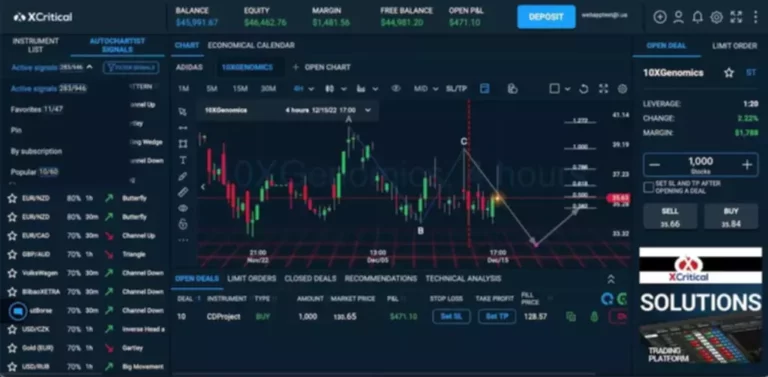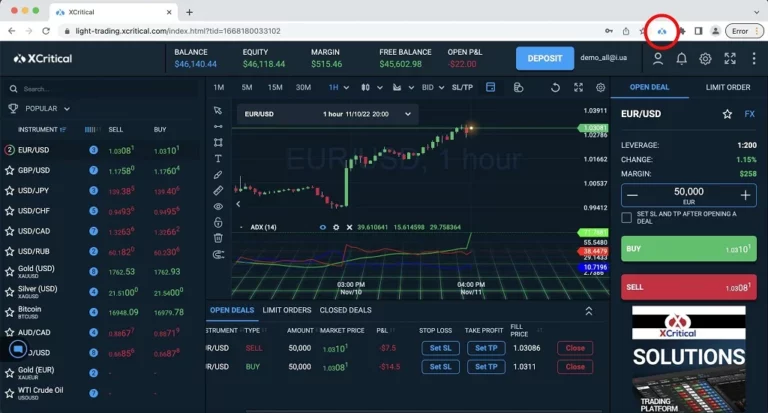Brokerage fees, also called dealer charges, are based mostly on a percentage of the transaction, as a flat payment, or as a hybrid of the two. For example, as talked about above, they can cost per transaction (i.e. $x per transaction). They can even charge annual charges of x% based mostly on the worth of the portfolio. A skilled advisor has a fiduciary accountability to supply the investments that greatest serve the shopper’s interests. That stated, a commission-based advisor could try to steer clients toward funding merchandise that pay beneficiant commissions as opposed to people who really benefit the consumer. There’s a number of key items that may have an effect on what brokerage fees are charged.

Conversely, buyers with decrease activity ranges might favor a brokerage with decrease mounted charges to reduce their total prices. Understanding these nuances permits for a strategic approach to investing that may improve overall returns. In trading, brokerage refers again to the charge or fee charged by a broker for executing transactions, similar to shopping for or selling stocks, on behalf of shoppers broker fees. It’s the broker’s major source of revenue and varies based mostly on transaction type, quantity, and brokerage firm insurance policies. Traditionally, most traders and merchants had to pay fees to their brokers to execute trades and keep their accounts. Because discount brokers offer a narrower choice of products and provide no funding advice, they charge lower charges than full-service brokers do.
What Is A Broker?
Brokers can physically present trades however most of the time, they monitor trades from their computer systems and are solely wanted to intervene in the case of an exceptionally massive or distinctive trade. Securities brokers register with the Financial Industry Regulatory Authority (FINRA), the broker-dealers’ self-regulatory body. In serving their clients, brokers are held to a standard of conduct based mostly on the “suitability rule,” which requires there be affordable grounds for recommending a specific product or investment. Just write the bank account quantity and sign within the utility kind to authorise your bank to make fee in case of allotment.
- Full-service brokers supply a selection of companies, including market analysis, funding recommendation, and retirement planning, on high of a full vary of investment merchandise.
- The exact price varies relying on the broker’s coverage and the type of transaction involved.
- A commission is a service charge assessed by a dealer or funding advisor for offering investment recommendation or dealing with purchases and gross sales of securities for a client.
- In the insurance industry, a dealer, in distinction to an agent, represents the interests of the customer and not the insurer.
- Volume-based discounts could additionally be tiered, with totally different fee rates applying to different levels of buying and selling volume.
Generally speaking, the extra critical ones are listed beneath, though this listing just isn’t meant to be exhaustive of all factors. Today, most online brokers no longer charge fee for purchasing and promoting shares. A commission is a service charge assessed by a broker or funding advisor for offering funding recommendation or handling purchases and sales of securities for a shopper. Alice Blue’s brokerage presents a flat charge of ₹15 or zero.05% per executed order for equity intraday, futures, and currency futures on NSE and BSE. Options and forex options incur a ₹15 charge per order, equity delivery is free. Brokerage fees are widespread in various parts of the financial industry, including banking, investing, insurance, supply companies, and actual property.
Brokerage
Full-service brokers will also have an incentive to perform well as a end result of if your portfolio’s belongings underneath management improve, which means they make more for managing them. If you are involved within the full-service broker space, Investopedia has a listing of the best full-service brokers. Understanding these variations and the way they align with individual funding strategies is crucial for making informed decisions that optimize financial outcomes. In gross sales, as an example, a commission motivates salespeople to shut deals, as their earnings are immediately linked to the sales they generate. This can lead to extra proactive selling and higher customer service, as larger sales immediately translate to greater revenue for the salesperson.

Brokerage fees can consist of multiple elements, making them complicated for inexperienced buyers. It’s essential to understand the various forms of brokerage charges that can be imposed. Some frequent examples include trade execution fees, account maintenance fees, custodial charges, and advisory fees, to call a few. At a full-service broker, you pay a premium for research, training, and recommendation.
The per-trade flat charge ranges from lower than $5 to greater than $30 per commerce. Account upkeep fees are often round 0.5% per yr primarily based on assets held. Some brokerage companies offer volume-based reductions, the place the fee per trade decreases as the trading volume increases.
What’s The Distinction Between Fee And Brokerage?
In the monetary securities trade, a brokerage payment is charged to facilitate buying and selling or to manage investment or other accounts. The three primary types of brokers that cost brokerage charges are full-service, discount, and online. A brokerage charge is a fee or fee a broker expenses to execute transactions or provide specialized services on behalf of clients.

In monetary companies, commissions are charged by brokers and financial advisors for executing trades or offering investment advice. This payment structure aligns the broker’s or advisor’s pursuits with the client’s, as they earn more after they facilitate extra transactions or handle bigger funding portfolios. Yes, some brokerage corporations provide commission-free buying and selling for certain kinds of assets or accounts, particularly within the case of stocks, ETFs, or mutual funds. Commission-free buying and selling has turn into more and more widespread as brokerage corporations compete to attract purchasers and differentiate their providers in the market. Advanced buying and selling platforms with subtle options, superior charting tools, and real-time market knowledge may come with greater fees or subscription prices.
Commissions Vs Charges
Her broker costs a 2.5% commission on the deal, so Susan pays $1,000 for the shares, plus $25. The broker receives the order and if the brokerage has these shares available, they will most likely fill Amy’s order instantly. If it doesn’t https://www.xcritical.in/, it might buy those shares on the exchanges or from different brokerages. They might not place the order in the amount of 10,000, grabbing instead 500 to 1,000 shares at a time to deliver to Amy after the funds settle.

These fees can embody inactivity fees, account upkeep fees, fund charges, analysis charges, and AUM fees. As you begin working with a broker, ask for an entire listing of their fees, including context on when each fee could also be charged. Remember, the objective is to attenuate costs with out compromising on the standard of service and the instruments necessary for successful investing. Understanding these fees is crucial for traders, as they’ll erode funding returns over time.
An instance of this would be if a high-net-worth investor named Amy wanted to position a big buy order for Tesla Inc. (TSLA) stock. Amy would name or message her broker, telling them to execute the purchase order of, say, 10,000 shares. This is an order of more than $1 million, so Amy feels extra comfy having a broker execute the trade instantly. Examples of a full-service dealer may include choices from a company similar to Morgan Stanley, Goldman Sachs, or Bank of America Merrill Lynch. The primary distinction is that a Demat account holds securities like shares and bonds in electronic type, whereas a brokerage account is used to buy and sell these securities in the inventory market. Fees for cash management have additionally been compressed through online providers called roboadvisors, which use algorithms to routinely set up and maintain an optimum funding portfolio.

This payment is charged by brokers for executing transactions or offering specialized companies. Unlike commissions that are sometimes a share of the transaction value, brokerage charges can take multiple forms and should not at all times be instantly linked to the transaction’s dimension. Some brokerage companies offer volume-based reductions to clients where the fee per commerce decreases because the buying and selling volume increases. This incentivizes high-volume traders to execute more trades and may find yourself in value financial savings for lively traders. Volume-based reductions could additionally be tiered, with completely different commission charges making use of to completely different levels of buying and selling volume.
A commission-based advisor or dealer makes money by promoting funding merchandise similar to mutual funds and annuities and conducting transactions with the consumer’s money. Deciding whether to opt for brokerage charges or commissions depends on your trading style, investment technique, and frequency of trades. If you might be an lively trader who regularly buys and sells securities, commission-based pricing may be extra appropriate. This is as a outcome of the fee mannequin expenses solely when trades are executed, allowing you to optimize prices if you engage in fewer trades. Commissions, then again, are costs levied by brokerage corporations for executing particular transactions, similar to shopping for or selling shares, bonds, or other investable assets. Commissions are often calculated based mostly on the transaction dimension or a percentage of the trade’s value and are solely relevant when a commerce is made.
An rising number of brokers offer fee-based funding merchandise, corresponding to managed investment accounts. As well as executing shopper orders, brokers may present traders with analysis, funding plans, and market intelligence. Full-service brokers supply a variety of products and services such as estate planning, tax session and preparation, and different financial companies. Not so way back, it was not uncommon for a full-service broker to charge upward of $100 per commerce for orders placed with a human broker.
